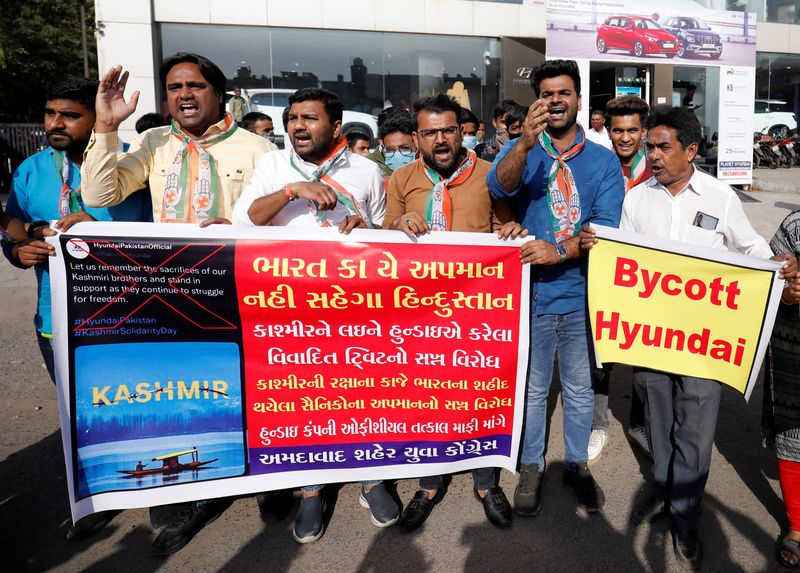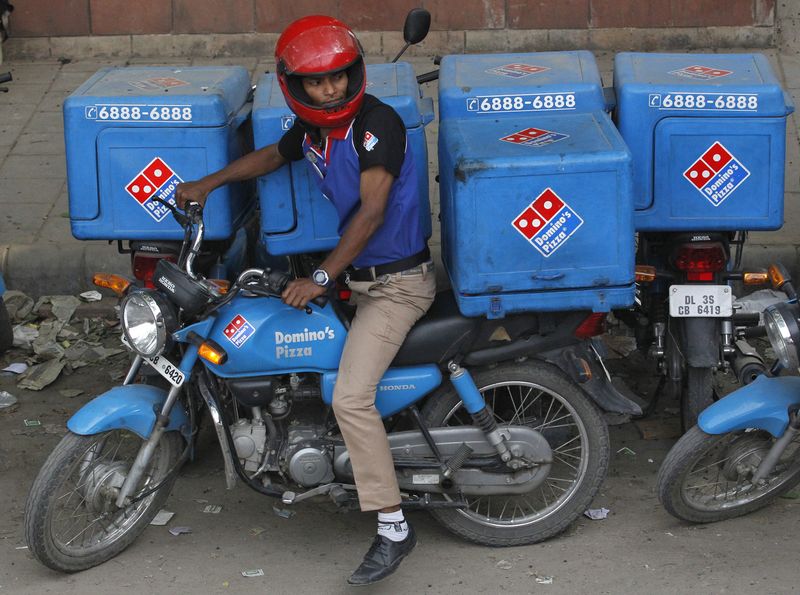By Aditi Shah
NEW DELHI (Reuters) - Hyundai Motor, Domino's and other companies have found themselves in a diplomatic fracas after their Pakistani partners tweeted support for disputed Kashmir, irking Indians and highlighting the risks of operating in the region.
Kashmir has long been a flashpoint between India and arch rival Pakistan, each of which controls only parts of the Himalayan territory but makes claims to it in full.
The row erupted after several companies posted messages on social media to mark Kashmir Solidarity Day, commemorated annually by Pakistan on Feb. 5 to honour the sacrifices of Kashmiris struggling for self-determination.
The posts on Twitter (NYSE:TWTR), Facebook (NASDAQ:FB) and Instagram outraged Indian social media users, who demanded apologies from the companies and urged boycotts of their products.
Others caught in the furore include Japan's Toyota Motor (NYSE:TM) , the world's biggest automaker, Suzuki Motor, majority owner of India's top carmaker Maruti Suzuki, Honda Motor, Isuzu Motor, South Korea's Kia Motors and Yum! Brands (NYSE:YUM)' KFC.
The affray highlights the risks global companies face while navigating sensitivities amid rising nationalism in South Asia, and spurred some of them to tighten their social media policies.
POSTS WERE 'UNAUTHORISED'
While issuing an apology, Toyota, Hyundai and Kia said the posts by their Pakistani partners were unauthorised and misused their brands. The carmakers also put measures in place to prevent a recurrence of such incidents.
Suzuki said it would advise business associates to comply strictly with its communication policy, which avoids any alignment with political or religious groups.
"In a flat world where social messages travel across borders, companies have to build in clauses and guardrails on what partners can speak about," said Amit Narayan, head of India and South Asia at risk adviser Control Risks.
Social media guidelines are usually for employees but companies will now need to set guidance and oversee how their partners represent their brand to minimise any risks, said Narayan.
India, compared with Pakistan, is a bigger market for companies and one where losing business can be painful.
POTENTIAL LOSS TO BUSINESS
Hyundai, facing the most severe backlash, is India's No. 2 car seller. It sold nearly half a million vehicles last year and exported more than one million, making it India's largest car exporter.
Hundreds of Indian social media users sought an apology over its Kashmir posts, and dozens said they would cancel their car orders. Even though the company apologised, it led to a rare diplomatic escalation between South Korea and India.
Earlier on Wednesday, members of the youth wing of India's opposition Congress party protested outside a Hyundai showroom in the western city of Ahmedabad.
More than concerns about the government, global companies worry about how their social media communication in one country can affect their affiliate in another, said a communications manager working for a multinational in Pakistan.

If there is a protest in India or a factory closure, it is a business loss, while the government can be won back at a later stage, said the person, who declined to be named due to the sensitivity of the matter.
"We can afford to hurt government but cannot afford to hurt an affiliate," he said.
